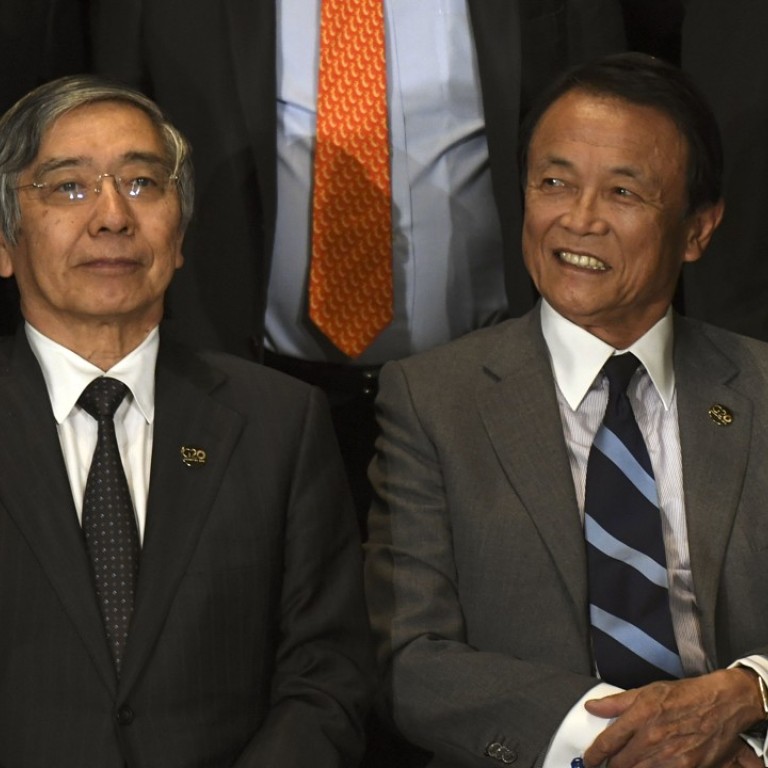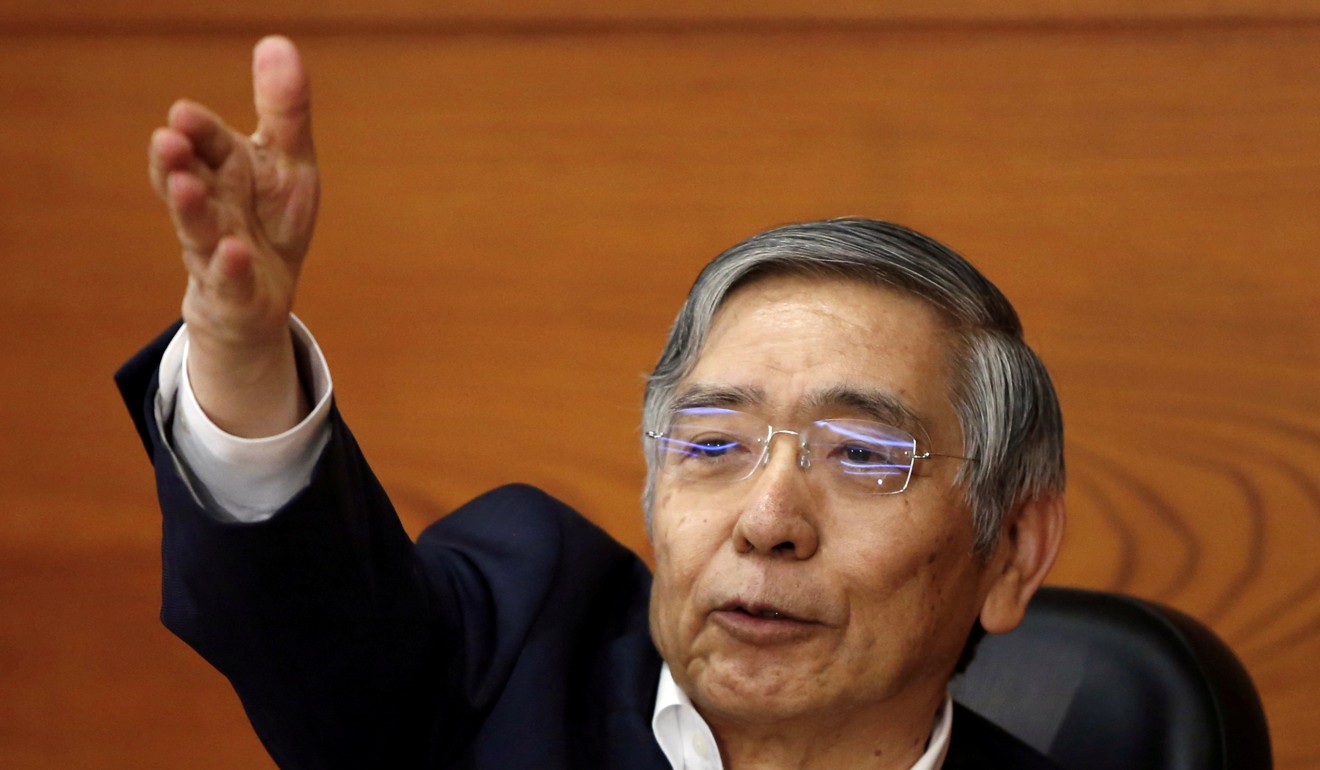
Japan’s Haruhiko Kuroda keeps mum on possible steps to soften easing pain
Governor of Bank of Japan knows ‘absolutely nothing’ about reports of policy tweaks
Bank of Japan Governor Haruhiko Kuroda stuck to the bank’s playbook on Saturday, declining to comment on reports that policy makers are considering measures to soften the side effects of their aggressive monetary easing campaign.
Remarks on the issue would not be appropriate given the proximity of the bank’s monetary policy meeting, Kuroda said, adding that policy decision will require sufficient discussion about prices and the state of the economy.
“I know absolutely nothing about the basis for those reports,” Kuroda said in Buenos Aires, where he is attending the meeting of finance ministers and central bank governors of the world’s leading 20 economies.

According to the reports, the BOJ is considering policy tweaks to make its monetary easing campaign sustainable in the long run. Changes could include a more flexible approach to its bond buying to control the yield curve and its purchasing of exchange-traded funds.
Japan’s latest CPI data, which showed a deceleration in core prices excluding energy and fresh food, underscored the bank’s challenge to generate inflation.
The BOJ will release new forecasts at the end of the July 30-31 meeting.
Lower inflation estimates would again raise questions about the effectiveness of its easing campaign and the cumulative impact of those measures on commercial bank profits, as well as stock and bond markets.
The BOJ faces a communication challenge should it take action to stem such side effects, since a cutting back of asset purchases or a raising of target rates could be viewed by some market participants as tightening moves.

